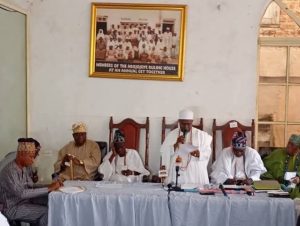
By Agwu Onuh, Esq.
Nigeria is a country that has often been described as a giant with feet of clay, and nowhere is this metaphor more painfully illustrated than in its oil and gas sector. A nation endowed with some of the largest proven reserves of crude oil on the African continent has, for decades, remained a paradox: a top exporter of raw crude but a perpetual importer of refined petroleum products. This contradiction is not an accident of history; it is the direct result of structural decay, entrenched corruption, and the complicity of unions and state actors who turned what should have been the nation’s greatest blessing into its greatest curse. The Nigerian oil and gas sector is the classic example of how rentier economics, state capture, and union parasitism can hollow out an industry from within.
The story begins with the discovery of oil in Oloibiri in 1956, an event that was supposed to transform the Nigerian economy. Oil was hailed as the black gold that would deliver prosperity, infrastructure, and modernity. By the 1970s, following the oil boom, Nigeria had become a rentier state, dependent on oil revenues for up to 90 percent of foreign exchange earnings and 80 percent of government revenues. Yet, the discovery of oil coincided with the institutional weakening of other sectors like agriculture and manufacturing. The easy money from crude exports created a state addicted to rents rather than productivity. It was against this backdrop that Nigeria established its first set of refineries — the Port Harcourt refinery in 1965, followed by others in Warri, Kaduna, and a second in Port Harcourt.
At the time, these refineries were symbols of national ambition. They represented the hope that Nigeria would not only export crude but also refine products domestically, ensuring energy security, creating jobs, and driving industrialization. But over time, they became symbols of inefficiency, mismanagement, and corruption. The refineries were politicized from the start, not built on commercial logic but as conduits for patronage and regional balancing. This was the first worm in the plant: an industrial project meant for efficiency became an appendage of politics.
Into this mix came the oil unions, most notably the Nigeria Union of Petroleum and Natural Gas Workers (NUPENG) and the Petroleum and Natural Gas Senior Staff Association of Nigeria (PENGASSAN). These unions emerged in the 1970s and 1980s when the oil industry was rapidly expanding and oil workers became among the most privileged in the Nigerian economy. They were trained abroad, exposed to best global practices, and given scholarships, allowances, and international postings. In theory, this should have produced a cadre of highly skilled workers capable of maintaining world-class refineries and advancing Nigeria’s industrial self-sufficiency. In practice, however, it produced a class of salaried elites who became more invested in maintaining their privileges than in ensuring productivity.
Over time, these unions evolved from being worker protection associations into political actors in their own right. By the 1990s, NUPENG and PENGASSAN could hold the entire nation hostage with strikes. They shut down fuel distribution networks, blocked roads, and crippled the economy to extract concessions. Successive governments — military and civilian alike — became wary of confronting them directly, preferring appeasement over reform. This appeasement entrenched a culture of entitlement: oil workers continued to draw salaries even when the refineries they manned produced nothing.
The decay of Nigeria’s oil sector cannot be understood without appreciating this toxic symbiosis between state inefficiency, subsidy fraud, and union complicity. For decades, the government poured billions of dollars into so-called “turn-around maintenance” projects for the four state-owned refineries. These projects, often contracted to politically connected firms, yielded nothing but paperwork. By some estimates, over $20 billion has been wasted on maintenance of refineries that today operate at less than 10 percent capacity, and often at zero. Yet throughout this period, refinery workers received salaries, allowances, and perks. They were trained abroad — in Europe, the United States, and the Middle East — in sophisticated refining techniques, only to return to plants that were idle, rusting, or cannibalized for parts. The irony is bitter: Nigerian taxpayers were financing workers to master technologies that they never applied, while the nation imported refined petrol at enormous costs.
This culture of waste was compounded by the subsidy regime, arguably one of the most egregious scams in modern economic history. The logic of the subsidy was simple: since Nigeria exported crude and imported refined products, the government decided to subsidize the cost of imported petrol to make it affordable to ordinary citizens. In practice, however, the subsidy became a goldmine for fraudsters. Importers inflated invoices, claimed subsidies for fuel never delivered, or engaged in round-tripping where the same consignment was claimed multiple times. The unions, instead of fighting this rot, became enablers. They postured as defenders of the poor whenever subsidy removal was proposed, but behind the scenes, they were aligned with the cartels who benefitted from the status quo.
For the unions, the rhetoric was always about protecting “national patrimony” and the “rights of the people.” In reality, what they were protecting were the rents that flowed from inefficiency. They never mounted serious protests against the decay of the public refineries. They never demanded accountability for the billions squandered on phantom turn-around maintenance. They never staged strikes to compel efficiency or productivity. Their fury was reserved for moments when reform threatened their rents: when privatization was proposed in 2007, when subsidy removal was floated in 2012, and when Dangote Refinery emerged as a genuine disruptor in 2023.
The 2007 episode is particularly instructive. When the Obasanjo administration sold the Port Harcourt and Kaduna refineries to Blue Star Oil, a consortium led by Aliko Dangote, for $670 million, it was a rare opportunity to inject private capital and efficiency into the sector. But unions, backed by vested political interests, rose in revolt. They forced President Umaru Musa Yar’Adua to reverse the sale. The unions claimed they were protecting national assets, but the real issue was that privatization threatened their stranglehold on inefficiency. If private investors ran the refineries profitably, the justification for bloated salaries and allowances in moribund public refineries would collapse. So they sabotaged reform and preserved the rot. In hindsight, this decision cost Nigeria dearly. In the years since, over $20 billion has been wasted trying to fix those same refineries, all to no avail.
While the unions and their allies were sabotaging reform, subsidy fraudsters were milking the nation dry. The fuel subsidy bill rose to trillions of naira annually, with much of it siphoned off in fraudulent claims. Some estimates put total subsidy losses at over N13 trillion in the decade preceding 2020. Every time government tried to remove or reduce subsidies, unions mobilized strikes, protests, and threats of national shutdown. They invoked the suffering masses as their justification, but their real alignment was with the subsidy cartels. As economist Thomas Sowell once observed, “The biggest myth about unions is that unions are for the workers. Unions are for the unions.” Nowhere is this more true than in Nigeria’s oil and gas sector.
Into this cesspool entered the Dangote Refinery, a private-sector initiative that many Nigerians had stopped believing was possible. At 650,000 barrels per day, it was designed to be the largest single-train refinery in the world. Built at an estimated cost of $20 billion, it stood in sharp contrast to the $20 billion wasted on four state refineries of a combined 450,000 bpd that remained non-functional. Dangote was not only investing capital but also betting against entrenched inefficiency, subsidy fraud, and union sabotage. It was a bold gamble in a country where building productive infrastructure has often been treated as an impossibility.
But the refinery’s commissioning in 2023 did not mark the end of struggle; it marked the beginning of an open war. Despite assurances that crude oil would be supplied locally, the Dangote Refinery found itself compelled to import up to 60 percent of its crude feedstock from the United States, as domestic suppliers prioritized export markets. This was itself a symptom of dysfunction: Nigeria, with all its reserves, could not organize a transparent and efficient system of supplying crude to its own refinery. Meanwhile, vested interests began to undermine Dangote directly. Allegations were floated about the sulphur content of Dangote products, ironically by a regulatory agency without a functional testing laboratory. The cabal of importers who thrived on the subsidy regime mobilized behind unions and depot operators to demand that Dangote maintain obsolete distribution models and pay trillions in “hostage fees” to ensure access to markets.
The unions, true to form, joined this campaign. Under the auspices of the Depot and Petroleum Products Marketers Association of Nigeria (DAPPMAN), they issued ultimatums and threatened chaos. They were not protesting inefficiency or corruption; they were protesting modernization. They wanted Dangote to preserve their rents, to ensure that even in a new refining era, the old inefficiencies would remain intact. It was a classic case of reaping where they had not sown, of demanding a cut from productivity they had no part in creating.
For once, however, the judiciary stepped in to restrain union excesses. On September 17, 2025, the National Industrial Court granted an ex parte injunction barring NUPENG and affiliated associations from disrupting Dangote Refinery operations. The court ordered that unions must not block roads, obstruct trucking, or embark on strikes against the refinery, at least until a substantive motion was heard. This intervention prevented a potentially crippling disruption, ensuring that Nigerians already battered by inflation would not face the additional hardship of fuel scarcity engineered by unions. It was a rare moment when the state asserted that national interest must trump union blackmail.
Yet, the struggle is far from over. The unions remain entrenched, the subsidy mindset still haunts policy debates, and vested interests continue to sabotage reforms. For decades, unions have thrived by monopolizing inefficiency. They did not strike when public refineries collapsed, when workers earned salaries for doing nothing, or when billions were looted through subsidy fraud. But they mobilize ferociously when reforms threaten to dismantle their rent streams. They were silent partners in the destruction of Nigeria’s oil and gas sector, architects of a collapse that has kept the nation dependent on imports and subsidy scams.
What makes this reality especially tragic is the wasted human capital. Thousands of oil workers were recruited, trained abroad, and paid handsomely to operate refineries that never functioned. They became a symbol of Nigeria’s dysfunction: world-class training matched with zero productivity. This was not merely inefficiency; it was structural sabotage. The unions ensured that salaries kept flowing, that allowances remained intact, and that inefficiency was normalized. Workers became comfortable in unproductivity, and unions shielded them from accountability. This is the rot at the heart of the Nigerian oil and gas sector: a culture of entitlement divorced from productivity.
Barrister Agwu Onuh writes from Abuja.



